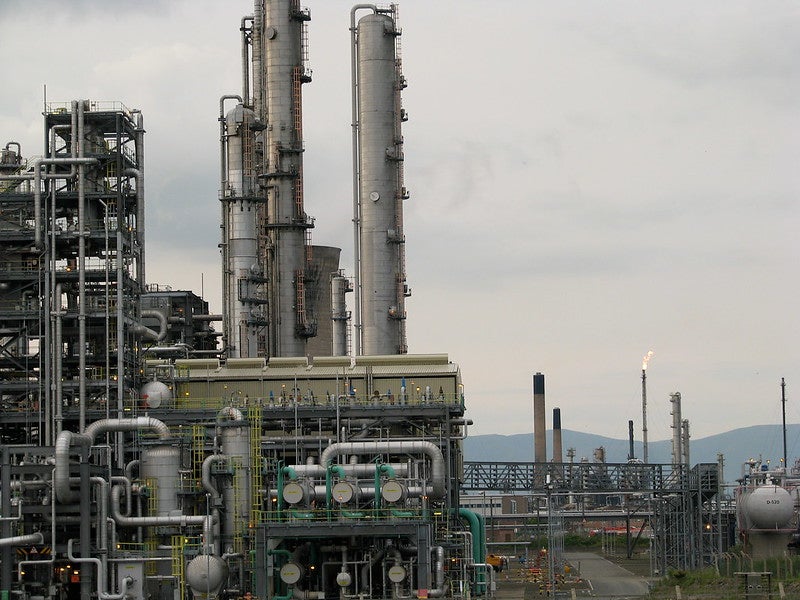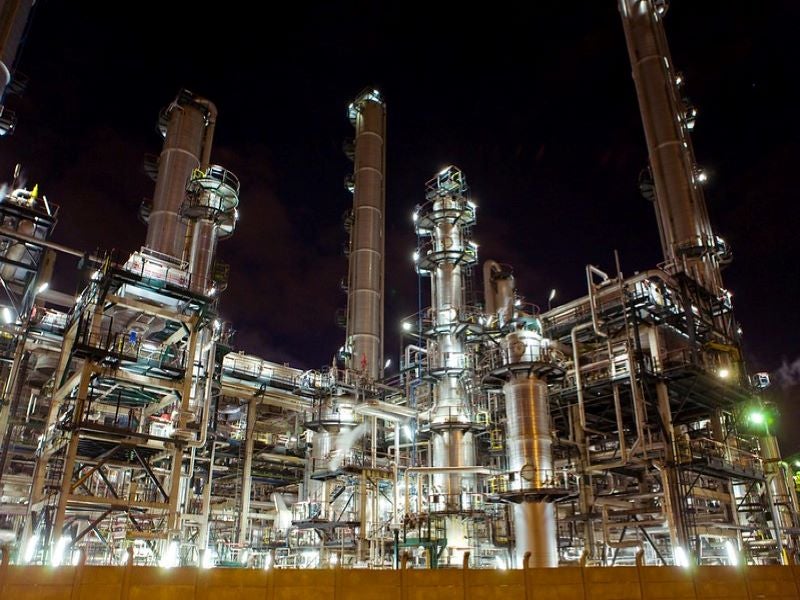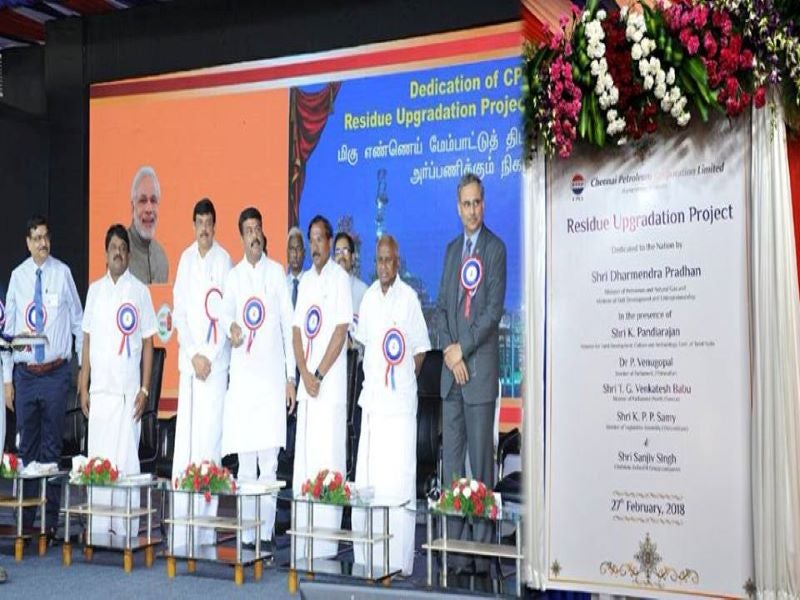The CPCL Manali refinery is a complex and integrated oil refinery operating in Chennai, India since 1969. It is one of the oldest refineries in southern India.
Chennai Petroleum Corporation (CPCL), a subsidiary of state-owned Indian Oil Corporation (IOCL), is the owner and operator of the refinery.
IOCL is the majority shareholder in CPCL with a 51.89% stake, while Naftiran Intertrade Company, a subsidiary of National Iranian Oil Company (NIOC), holds a 15.4% stake. The other shareholders, including public banks, insurance companies and mutual funds hold the remaining 32.71% stake refinery.
CPCL, previously known as Madras Refineries, was originally incorporated as a joint venture between the Government of India, Amoco, and NIOC in 1965.
The refinery commenced operations with a 2.5 million tonnes per annum (Mtpa) crude distillation unit in 1969. The CPCL Manali refinery’s crude oil processing capacity currently stands at 11.1Mtpa.
Location and crude supply
The CPCL refinery site is spread over approximately 800 acres in the Manali industrial suburb, approximately 15km north of Chennai, Tamil Nadu, India.
A new 17km-long and 42in-diametre crude oil pipeline from the Chennai Port to the refinery was commissioned in December 2018. It was a replacement to the pre-existing 7.5km-long, 30in-diametre crude oil pipeline.
Processing infrastructure
The various processing units at the refinery include three crude distillation units, a once-through hydrocracker unit, a fluid catalytic cracking unit, a continuous catalytic reforming unit, an isomerisation unit, a delayed coker unit, a visbreaker unit, a diesel hydro de-sulphurisation unit, and a diesel hydro-treating unit.
The refinery also houses hydrogen generation units, a lube hydro-finishing unit, an NMP extraction unit, a propylene unit, and a petrochemical feedstock unit.
The refining capacity was increased to 5.6Mtpa with the commissioning of a second crude distillation unit in 1984. Later, the refining capacity was increased to 6.5Mtpa after debottlenecking the second distillation unit.
The refining capacity was further increased to 9.5Mtpa with the installation of a third crude distillation unit. The revamp of the third crude distillation unit boosted the refining capacity to 10.5Mtpa in 2010.
The refinery produces a range of products, including petrol, diesel, kerosene, LPG,aviation turbine fuel,naphtha, fuel oil, bitumen, lube base stocks, paraffin wax, hexane, and petrochemical feed stocks.
Recent activities in the refinery
The diesel hydrotreater unit revamp project, which resulted in the increase of capacity from 1.8Mtpa to 2.4Mtpa, was completed in November 2019.
The diesel hydro desulphurisation unit (DHDS) also underwent revamp to increase the capacity from 1.8Mtpa to 2.4Mtpa in February 2018.
A new FCC gasoline desulphurisation unit, with a capacity of 0.6Mtpa, achieved mechanical completion in August 2020 and was commissioned in January 2021.
A new sulphur recovery block, with a capacity of 200 tonnes a day (TPD), is scheduled to achieve mechanical completion in the first half of 2021.
A regasified liquefied natural gas (R-LNG) project is also being currently executed in the refinery. The project is intended to replace naphtha with R-LNG as the fuel and feed for various units in the refinery, including the hydrogen generation units, gas turbines, and utility boilers.
Resid upgradation project
The resid upgradation project, which enables increase in the distillate yield, was launched in February 2018.
It involved the installation of a new 2.2Mtpa delayed coker unit and the revamp of the once-through hydro cracker unit (OHCU) to increase its capacity from 1.85Mtpa to 2.25Mtpa.
The other units installed as part of the project included a coker LPG continuous film contacting unit, a sour water stripper, an amine regeneration unit, and a sulphur recovery unit.
Contractors involved
Engineers India was awarded a lump sum turnkey contract worth approximately £71.5m ($109.5m) for the coker block of the Resid upgradation project in August 2013.
The contract scope included the project management, residual process design, detailed engineering, procurement, as well as construction management and supervision services. The coker block was commissioned in November 2017.
Separately, Engineers India bagged a turnkey contract to execute BS-VI auto fuels quality upgradation project in the Manali refinery. As part of the contract, a new 0.6Mtpa FCC gasoline desulphurisation unit was commissioned in January 2020. Axens provided the license for this unit.
Jacobs Engineering Group was contracted to provide project management consultancy (PMC) services, as well as engineering, procurement, construction management (EPCM) services for the Resid Upgradation project in May 2010.
The contract scope also included the process packages for the utility and offsite facilities, a detailed feasibility report, as well as the PMC services for execution of the coker and sulphur blocks.





